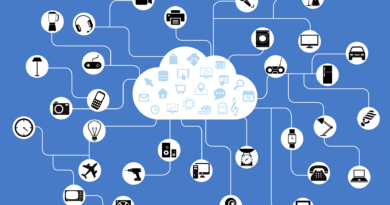The Intersection of Tech and Healthcare: Innovative Solutions for Improved Patient Care
The integration of technology into healthcare has ushered in a new era of innovation, transforming the way patient care is delivered. From electronic health records to telemedicine, artificial intelligence to wearable devices, technology is revolutionizing healthcare by enhancing efficiency, accuracy, and patient outcomes. This article explores the intersection of tech and healthcare, highlighting the innovative solutions that are improving patient care and transforming the healthcare landscape.
Electronic Health Records (EHR):
Electronic Health Records have replaced traditional paper-based systems, enabling healthcare providers to store, manage, and share patient information electronically. EHRs enhance the efficiency and accuracy of medical records, reducing errors, improving communication between healthcare professionals, and facilitating seamless coordination of care. They also enable patients to access their medical information securely and participate more actively in their own healthcare decisions.
Telemedicine and Remote Monitoring:
Telemedicine has emerged as a game-changer in healthcare, leveraging technology to provide remote medical consultations and monitoring. Patients can connect with healthcare professionals through video conferencing, receive diagnoses, and even undergo virtual examinations. Remote monitoring devices, such as wearable sensors and mobile apps, enable continuous tracking of vital signs, allowing healthcare providers to monitor patients’ health remotely. This technology improves access to care, especially for individuals in rural or underserved areas, and enhances the management of chronic conditions.
Artificial Intelligence (AI) in Healthcare:
AI is revolutionizing healthcare by enhancing diagnostics, treatment planning, and patient care. Machine learning algorithms can analyze large datasets, identify patterns, and provide insights that can aid in early detection of diseases. AI-powered imaging technologies improve the accuracy of medical imaging interpretation, enabling radiologists to detect abnormalities more efficiently. AI chatbots and virtual assistants provide personalized patient support and triage, enhancing patient experience and reducing the burden on healthcare staff.
Precision Medicine and Genomics:
Advancements in genomics, combined with technology, have paved the way for precision medicine. The ability to analyze an individual’s genetic makeup enables personalized treatment plans based on their unique genetic profile. Genomic data can help identify disease risks, predict responses to specific medications, and develop targeted therapies. This personalized approach to medicine increases treatment efficacy, reduces adverse reactions, and improves patient outcomes.
Health Data Analytics and Population Health Management:
The abundance of health data generated by electronic health records, wearable devices, and other sources presents an opportunity for health data analytics. By analyzing large datasets, healthcare providers can gain valuable insights into population health trends, identify high-risk individuals, and develop targeted interventions. Data analytics also facilitate predictive modeling, enabling earlier detection and prevention of diseases. Population health management strategies leveraging technology help optimize healthcare resources, improve preventive care, and reduce healthcare costs.
The intersection of technology and healthcare holds immense potential for transforming patient care. From electronic health records to telemedicine, AI to genomics, innovative solutions are enhancing efficiency, accuracy, and patient outcomes. Embracing these technological advancements enables healthcare providers to deliver more personalized, accessible, and effective care. However, it is essential to ensure privacy, security, and ethical considerations when integrating technology into healthcare. By leveraging the power of technology, we can improve patient care, advance medical research, and create a more efficient and patient-centric healthcare system.








